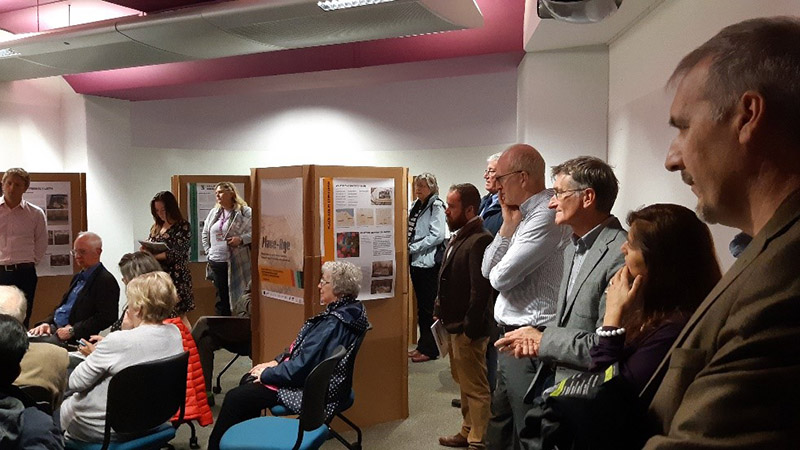Published:

Heriot-Watt University is leading a venture with city-level exhibitions underway in Edinburgh, Glasgow and Manchester as part of a project aimed at designing age-friendly cities and communities.
These exhibitions are launching a series of policy and practice guidelines and recommendations aimed at developing age-friendly urban environments, which support independence and mobility whilst addressing social isolation and exclusion.
They represent the final phase of the project PLACE-AGE: Towards Age-Friendly Cities and Communities (2016-19) which has undertaken research with over 300 older adults to explore experiences of ageing across different neighbourhoods identifying barriers and opportunities to living in the community.
The research was conducted in three cities and nine neighbourhoods in the UK: Manchester (Baguley, Rusholme and Didsbury); Edinburgh (Craigmillar, Leith and Morningside) and Glasgow (Partick, Govanhill and Easterhouse).
The work was funded by the Economic and Social Research Council (ESRC) bringing together academics across five academic institutions in the UK - Heriot-Watt University, University of Edinburgh, University of Dundee, Keele University and Manchester Metropolitan University.
In Edinburgh, the findings were showcased and recommendations were launched at the City of Edinburgh Council headquarters at Waverley Court on Monday, September 30.
Dr Ryan Woolrych, the project lead from The Urban Institute at Heriot-Watt and who opened the event said: “I am delighted to have officially opened this event. The exhibition contains input from local residents of their experiences of living across different urban contexts in the UK.
“We have gathered and analysed this data at the neighbourhood level and produced a set of national-level recommendations to guide policy and practice with regards to ageing in the UK.”
Age-friendly communities are those that have policies, services and structures that enable older people to age actively – that is, live in good security, enjoy good health and continue to participate fully in society.
The next steps for the project will include working with key decision-makers to ensure the project findings are used to shape policy and practice on the delivery of age-friendly urban environments and Edinburgh's new City Plan 2030.
Cllr Neil Gardiner, Convener of the Planning Committee, the City of Edinburgh Council, said: “We welcome this research that recognises the demographic changes taking place and what needs to be done to guarantee older people a good quality of life. The findings are timely as we are about to embark on our new City Plan 2030. This gives us the opportunity to reflect the research recommendations in our policies for the built environment to ensure developers are creating sustainable and age-friendly neighbourhoods.”